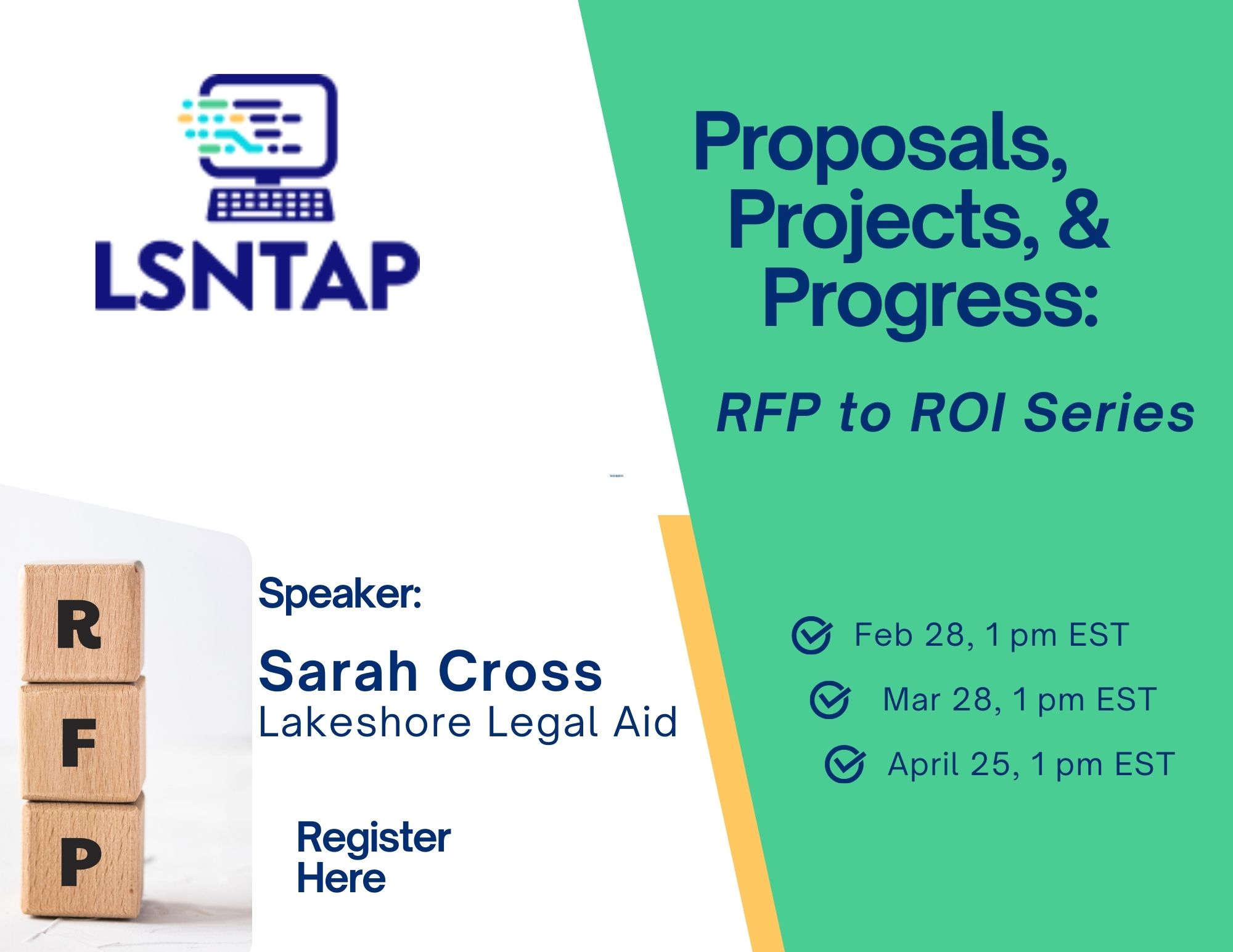By Probono Net 7/23/2014
This webinar highlights new tools and approaches that aid advocates with legal screening, triage and analysis activities, and help litigants navigate unfamiliar legal processes. We'll hear from panelists working on cutting edge projects in the nonprofit legal sector, how expert systems can enhance service delivery and support community partnerships, and tools and techniques that focus on balancing considerations rather than applying rules. Join us to hear about what's new - and what's next - in this area
Panelists:
Zach Hutchinson, Student and Research Assistant, Georgetown University Law Center
Adam Friedl, Program and Special Initiatives Manager at Pro Bono Net
Donna Dougherty, Attorney-in-Charge at JASA/Legal Services for the Elderly in Queens
Marc Lauritsen, President, Capstone Practice Systems
Moderator:
Liz Keith, Program Director, Pro Bono Net
How can new technologies
- Aid advocates with legal screening, triage, and analysis
- Help litigants navigate unfamiliar processes
- Support community partnerships to expand access to assistance
Community Approaches
- Neota logic
- Drools engine
- HotDocs and A2J author guided interviews
- Drupal-based options
- HTML/Javascript
Panelist Zach Hutchinson discusses three triage and expert systems through Georgetown Law’s GULC App Program
The program partners with Pro Bono organizations and, in teams of 3-4 students, creates applications to help with a legal question or problem.
3 types of applications
- Self-help tools
- Intake/clinic assistance
- Advocacy/adjunctive
Zach presents three demos:
- OAH benefits appeals coach: Serves as a coach to users preparing for unemployment benefit hearings at the D.C. Office of Administrative Hearings, and provides targeted guidance regarding the evidence users should present.
- Employment Justice Center (EJC) Wage theft advisor: helps low income workers with wage theft claims i.e. minimum wage or overtime issues. Self-help or clinical use
- MIDAS (Military Impact of Discharge Assessment System): Helps determine veteran benefit eligibility especially with confusing discharge situations.
Benefits of using these programs: they conditionally ask questions so you don’t waste time determining eligibility, and they produce reports for internal use or that can be emailed to clients
Panelists Donna Dougherty and Adam Friedl discuss the Debt and Eviction Navigator, The DEN and how JASA empowered social workers to conduct legal screenings while visiting homebound elderly clients.
This tool is designed to:
- Help you figure out if you have a landlord-tenant issue or a consumer debt issue that should be addressed
- Provide you with resources so you can learn more about the issue and steps you can take yourself
- Connect you with legal service providers who may be able to help you take action
Future Goals:
- Incorporate e-filing
- Broaden subject areas
- Generate statistical data, analysis, and reports.
Presenter Mark Lauritsen presents choiceboxing for helping people make choices which involve competing values and perspectives.
When making decisions that involve many options, considerations, varying degrees of importance, and disagreements about relative importance, creating a choicebox can break down the complexity and help make complicated decisions.




